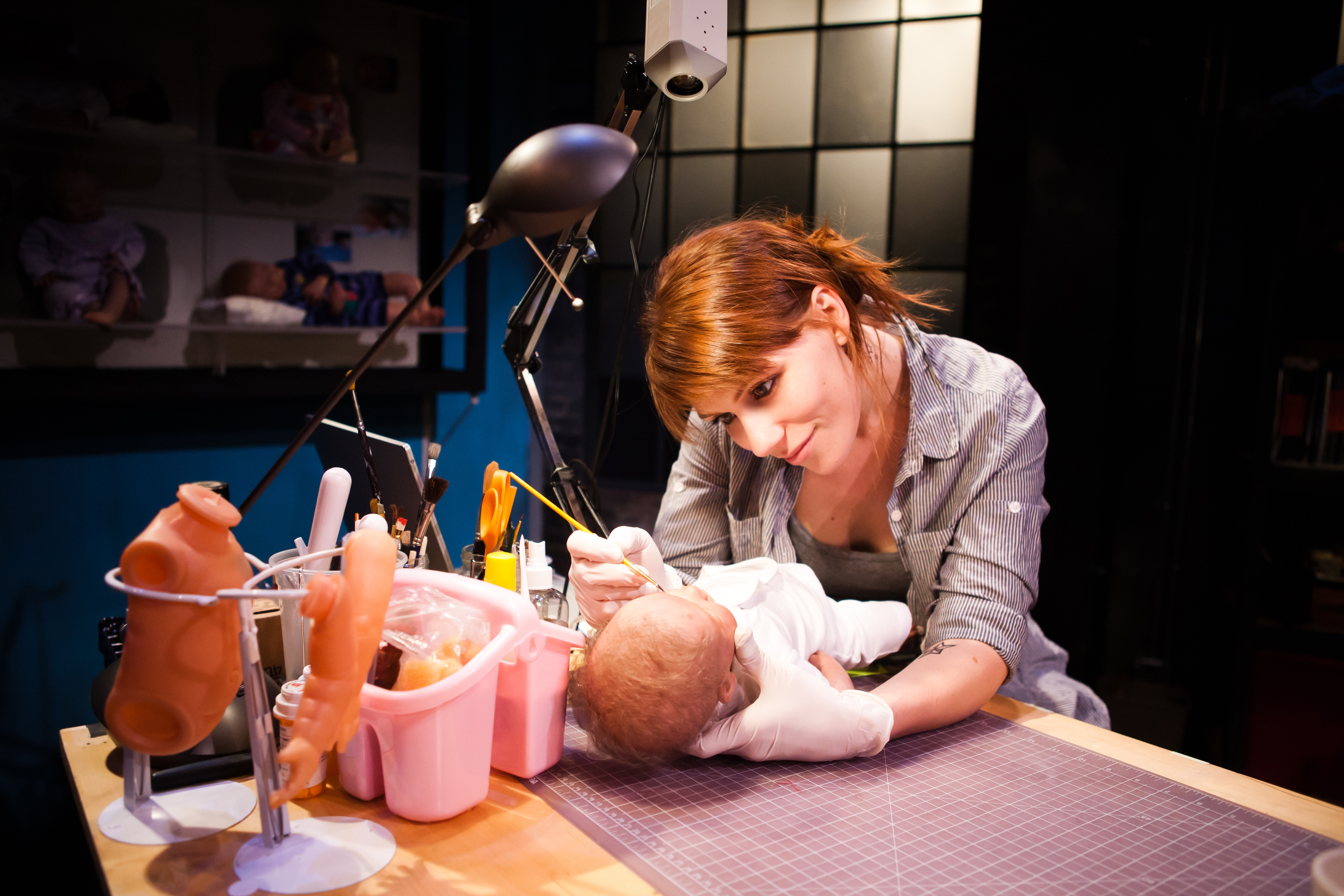By Caitlyn Tella, PF Volunteer
At PF we develop new plays. So, what does that mean, anyway? What's the difference between nurturing a new work and producing a full-on show? Here, I will look into these questions by interviewing the artists behind our next Rough Reading, Girl in a Box, written by resident playwright Geetha Reddy and directed by Jessica Heidt. First up is a look into the actor's experience, through the eyes of Lauren English, who will be playing "Ava" in the reading.
From her days at NYU Grad Acting to her recent performance in Claire Chafee’s Why We Have a Body at the Magic, local actress Lauren English has often worked directly with playwrights on their scripts. As an actress myself, I’ve never had this opportunity, so I wanted to get some insight on what it's like to perform in a staged reading. Here is some of the wisdom Lauren shared with me:
At PF we develop new plays. So, what does that mean, anyway? What's the difference between nurturing a new work and producing a full-on show? Here, I will look into these questions by interviewing the artists behind our next Rough Reading, Girl in a Box, written by resident playwright Geetha Reddy and directed by Jessica Heidt. First up is a look into the actor's experience, through the eyes of Lauren English, who will be playing "Ava" in the reading.
Lauren English
IT’S NOT REALLY ABOUT YOU J
"Doing a staged reading requires you to extend a sensibility outside of yourself, because what you’re ultimately doing is giving the play the best reading possible so that the playwright and the producers and the director can hear it. I always feel like it’s my job to do the best reading of the play that I can so that the playwright can continue to work on it."
ACTOR-PROOFing
"In rehearsal for a staged reading my role is to point out the things that aren’t actor-proof. For example, a good actor can make a bad line work, but I don’t feel like that ultimately serves a reading or workshop of a play because what you want to do is make it actor-proof. The lines must be so clear and succinct that an inexperienced actor could encounter a line and know what to do with it. As an actor, you don’t want to try to save the play by interpretation."
I SEE A VOICE
"The last play I did where the playwright was in the room was Why We Have a Body and the most exciting thing is getting to hear the playwright’s voice in the room. You have the chance to ask, “I’m not really understanding this section of the play—why does she make this decision?” Most of the time, and certainly with Claire Chafee—she would go into the storytelling mode and talk about these characters as if they were real people. All of a sudden this mystery becomes a totally specific reality, and that’s thrilling. There’s something super exciting about having the person who created this character tell you about her. It can really make your work more specific."
BATTLING THE TIME CRUNCH
"It’s important to spend as much time as possible with the script before rehearsals start. Read the script and identify any major questions that you have about the story, so that you can come to rehearsal and say, “Okay, I know we don’t have much time but I just want to make sure I’m clear—in the second act she does this, she makes these choices, is that what I’m feeling here?” In that regard you’re at least being as clear as you possibly can, story-wise.
Lauren and Baby Eva in Reborning by, Zayd Dohrn at SF Playhouse. Photo: Jessica Palopoli
USE YOUR INSTINCTS!
"Some actors are really best when they have time to process the play, time to go through all the emotions and everything that’s going on. And other actors (like me!), usually find that the first instinct is the right choice. It’s important in these readings to go in and make decisions, but also be open to what the director’s going to say."
LET GO OF EGO
"Honestly, the best attitude to have in a staged reading or a workshop of a new play is the willingness to try anything, willingness to let go of your own ideas, willingness to let go of your ego. It’s not just about the actor, and yet it is—you obviously can’t do a staged reading without actors. But it’s really important that you be willing to put your own ideas and feelings aside to honor the process of developing a script."
AND LASTLY,
"It’s an insanely gratifying experience to be a part of something as it’s being formed."
You can catch Lauren's performance in Geetha Reddy's new play Girl in a Box on Monday, November 28 at Stanford or on Tuesday, November 29 at the Thick House in San Francisco. Readings are FREE with a suggested $10 donation. Bring a friend and join the fun! More info here.
Look out for our next interview with director Jessica Heidt here on the PF blog!



No comments:
Post a Comment